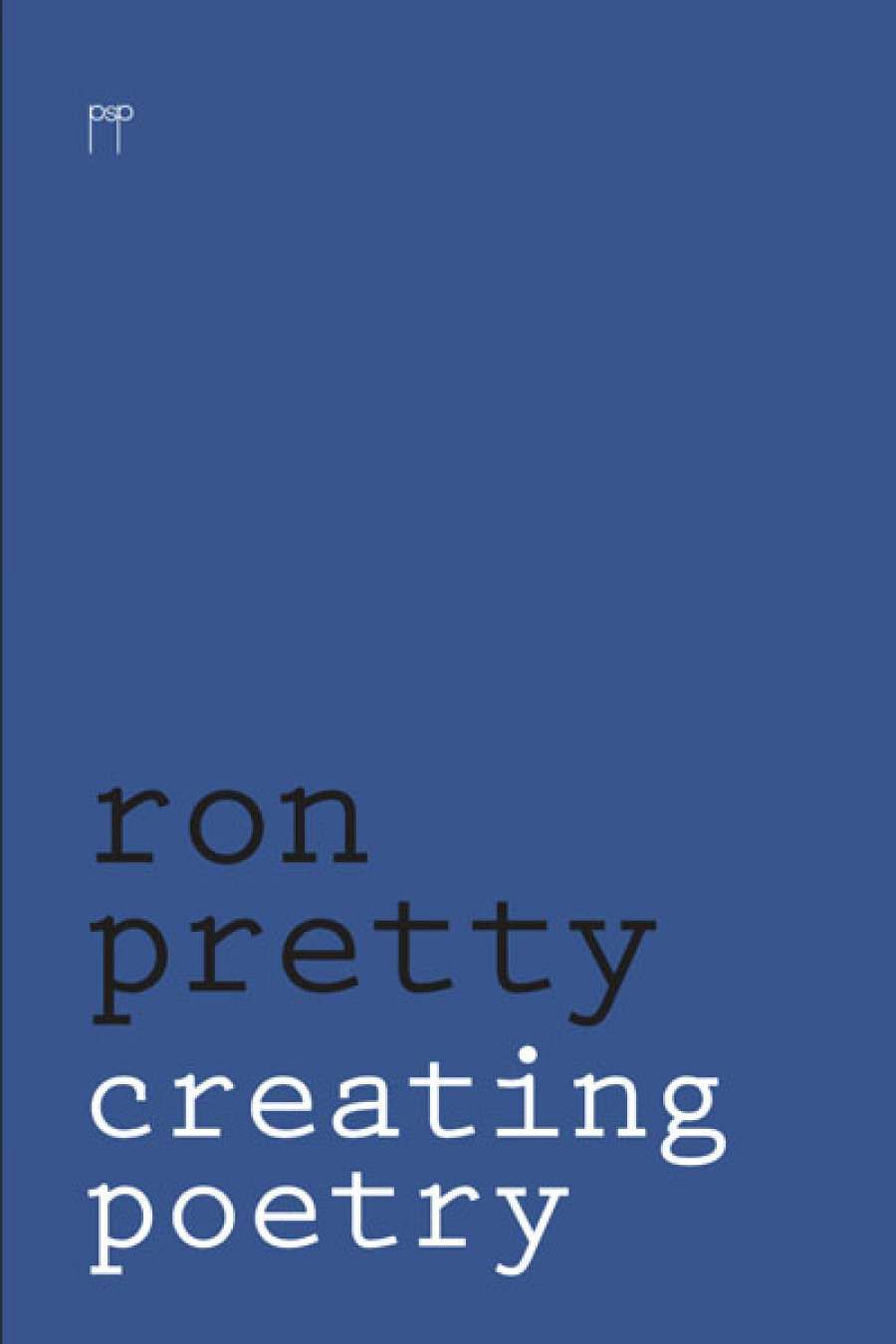
- Free Article: No
- Contents Category: Poetry
- Custom Article Title: Judith Beveridge reviews 'Creating Poetry' by Ron Pretty
- Review Article: Yes
- Online Only: No
- Book 1 Title: Creating Poetry
- Book 1 Biblio: Pitt Street Poetry, $32 pb, 180 pp, 9781922080561
Pretty avoids making the book too academic. His clear, accessible style makes the information entirely comprehensible. His discussions of form, imagery, meter, and rhythm are particularly enlightening. The creative tasks that are featured in the book generally function at the micro level, stepping the reader through elements of craft: drafting, form, language, imagery, sound, structure, word play. There is no guarantee that these exercises, once completed, will make someone a good poet, but they will certainly alter the relationship they may have had with words to make them more sensitive to the erotics of language and to remove, at least to some extent, the notion of language as purely functional.
Although the book is primarily pitched at beginners, some of the information in some chapters is perhaps too basic. In the chapter on form, Pretty fails to say how the villanelle, because of its particular structure, lends itself to certain emotions: grief, nostalgia, loss. This information would be helpful to someone attempting to write a villanelle, or to understand the effect of its repetitions. However, there is a broad range of different forms and styles discussed in the book, including the stock, go-to forms of haiku and limerick, as well as less common inclusions such as palindromes, poems using eponyms, Tom Swifties, and poems using abbreviations and the short cuts of text messages. From this, the reader gains a sense of poetry's remarkable ability to use patterns, shapes, and structures to impart and deliver meaning.
 Ron Pretty
Ron Pretty
In his discussion of the free verse line, Pretty fails to mention that the line can function as a unit of time as well as a unit of sense, and given that the line is one of free verse's most problematical components, it seems that some deeper discussion may be called for, especially as regards the line's relationship to the syntax of the sentences. It seems imperative too, in any discussion of the line, to include examples of badly lineated poems to show how they can appear like chopped-up prose. James Longenbach's seminal book, The Art of the Poetic Line (2007), has not been included in the books for further reading, and most of the books listed do not have recent publication dates, so it is hard to know what has been updated from earlier editions. There is also an absence of any online references which current students and teachers would certainly be expecting. There are also a couple of errors. Pretty calls Dylan Thomas an Irish poet, and refers to Susan Hampton as Susan Hampden. Pretty could have included some newer examples of Australian poetry in the book to give it a more up-to-date feel. But overall the book has a generous, engaging range of examples and an approach that is inclusive and representative of poetry over the ages.
The inclusion in Chapter One of quotes by various writers dispelling myths commonly held about writing is empowering for the reader. Even if one has been writing for a long time, these myths tend to resurface and play havoc. It is good to be reminded at any stage that 'real writing ... is much more like setting out as an explorer' and that 'Writers are made, not born.'
It is clear that Ron Pretty has produced a book that has served poetry writing in schools and in the community for nearly thirty years; its reprinting by Pitt Street Poetry attests to its importance and popularity. Pretty has brought to bear his considerable teaching experience and practice as a poet on the book's content and structure, and he has imbued it with his genuine passion for poetry, which makes it a pleasure to read.


Comments powered by CComment